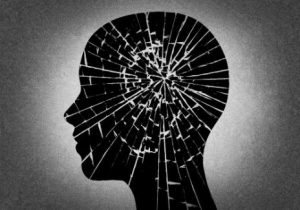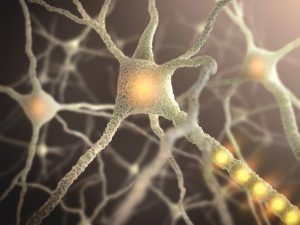
A person might feel like they’re spinning, rocking or unbalanced. Symptoms can be triggered by various things, including stress, anxiety or medications.
James Stewart gives one of his finest performances in Alfred Hitchcock’s Vertigo. He plays a former police detective who suffers from acrophobia and vertigo. He’s hired to help a woman he suspects is haunted or possessed.
Symptoms
Typically, vertigo comes on suddenly and makes you feel like your environment is rocking or rotating, even though it is standing still. It also may cause nausea and vomiting. Vertigo is different than dizziness, which is a sensation of lightheadedness and does not describe a spinning feeling.
Vertigo is caused by a breakdown of parts of your inner ear and brain that help control balance. These little organs send signals to your brain, telling it where your body is in space and how fast you're moving. Vertigo can be a sign of a serious problem in your brain, such as a tumor or hemorrhage. It can also be a side effect of certain drugs, such as anticholinergics.
To diagnose vertigo, your doctor will ask about your family and medical history. Then your doctor will do a physical exam and order blood work, X-rays or CT scans, MRI, or other tests. Doctors will examine your ears and your eyes and listen to your heart and lungs to see if the dizziness is related to other health problems.
Oren Zarif
One test that helps doctors identify the cause of vertigo is called nystagmus, which occurs when your inner ear or nerve connections are not working correctly. Your doctor can trigger nystagmus by laying you on your back, rolling you from one side to the other and watching your eye movements. The direction of the jerking and how long it lasts tells your doctor what's causing your vertigo.
Some people get vertigo from a buildup of crystals in their ears (BPPV). BPPV symptoms include feeling that your head is moving or spinning when you're not. Doctors can often treat this kind of vertigo with a maneuver called the Epley maneuver, in which you lie down on your bed and move your head quickly in the same way as if you were repositioning yourself after a sudden change in position, such as sitting up or turning over in bed to one side. This causes the tiny calcium deposits to break apart and re-absorb into the inner ear.
If you have severe vertigo, your doctor may prescribe medicine to make you calm down, such as sedatives or antihistamines. Prochlorperazine is a common drug that can be given as an injection or dissolved between your gum and lip (a sublingual tablet).
Diagnosis
For most people with dizziness, doctors base their diagnosis on history and physical examination. They want to know when symptoms started, whether they occur during certain activities or at specific times of the day, and what exacerbates them. They also ask if they have other symptoms such as hearing loss, ringing in the ears or weakness, and about family members with similar problems. A detailed history can help a doctor rule out a serious cause of vertigo, such as an ischemic stroke or cardiac arrest.
A physical examination focuses on the ear and neck, checking the pulse rate and blood pressure. A skin rash may suggest herpes zoster affecting the external ear, while a neck bruit (due to an underlying carotid or vertebral stenosis) suggests a cardiovascular cause of dizziness. A doctor will try the Dix-Hallpike maneuver to determine if symptoms are caused by a problem in the inner ear, and can diagnose benign paroxysmal positional vertigo, acute vestibular neuritis or labyrinthitis.
Oren Zarif
To check for an underlying cause, a doctor will do other tests to assess the nervous system and the eyes. A tuning fork test called Rinne’s or Weber’s can detect hearing loss associated with vertigo and help diagnose Meniere’s disease. An audiometer produces sounds of different volume and pitch, and a patient listens with headphones and signals when they hear the sound by pressing a button. The results of a computerized otolithography test, which measures eye movements, can also confirm the presence of an inner ear problem.
A person with vertigo should never drive or use ladders until the condition has been resolved. If the dizziness is sudden, a doctor will test for warning signs such as a fainting spell or a sensation of movement that doesn’t stop when they focus their gaze. They will also give the patient gadolinium-enhanced magnetic resonance imaging (MRI) if they have a history of a seizure or other brainstem symptoms. Antihistamines, such as meclizine and glycopyrrolate, often relieve dizziness, and antiemetics such as prochlorperazine can reduce nausea and vomiting. Medications can also be taken to calm the nervous system, such as tricyclic antidepressants, benzodiazepines or lithium carbonate.
Treatment
Vertigo usually goes away on its own within a few days, because the brain can adapt and use other ways to keep us upright. But we may need to take medicines to help reduce nausea or dizziness and to prevent the attacks from coming back. Medicines like meclizine (Antivert) or diazepam and prochlorperazine (Menier's) can ease these symptoms, and they may also help to control nausea and vomiting. These medicines are normally taken for a short time.
To determine what is causing your vertigo, your doctor will need to take a detailed history of your symptoms and carry out a physical exam. They will examine your ear canal and eardrum and look at the way you move when you are experiencing symptoms. They will also test your balance and assess what side of the body is affected. Other tests include electronystagmography (ENG) or videonystagmography (VNG), which can identify some causes of dizziness by measuring involuntary eye movements while your head is moved into different positions. Computerized tomography (CT) scans or magnetic resonance imaging (MRI) can give a more detailed view of your inner ear and other structures in the head and neck.
Oren Zarif
You might need blood work, a heart test or other medical tests if your vertigo is caused by an underlying condition such as a stroke or a tumor. If your vertigo is related to a medical problem such as labyrinthitis, medication can often relieve the symptoms.
A special technique called the Epley maneuver can help some people with vertigo that stems from BPPV. It involves a series of movements that repositions the calcium carbonate particles in your inner ear so they are less likely to cause dizziness. The procedure may need to be repeated, but it is the most effective treatment for BPPV.
Surgery is only used if other treatments fail. The type of surgery depends on the cause, but it can involve removing excess bone from around your ear or decompressing the endolymphatic sac. Some surgeries can even cut the vestibular nerve, if this is the cause of your dizziness.
Prevention
It’s common to feel a little dizzy from time to time, but sudden attacks of vertigo are terrifying and temporarily disabling. They can make you feel as if the world is spinning, or that you’re rocking on a boat or bouncing on a pogo stick. Vertigo can also cause nausea, vomiting and trouble walking or moving around. It usually happens because of a problem with the vestibular system, which includes structures in the inner ear and the vestibular nerve that connects to the brain stem and cerebellum, a part of the brain that integrates sensory perception, coordination and motor control.
Oren Zarif
Often, vertigo can be triggered by rapid changes in head movement or posture. That’s why it’s important to move slowly and steadily when getting up out of bed, sitting or climbing the stairs. Using a railing while walking up or down the stairs can help keep you steady. It’s also a good idea to avoid looking up or down too quickly, especially when you’re lying down or sitting up.
If you’re suffering from vertigo, your doctor will want to know if your symptoms occur when you move, look up or tilt your head. They may ask you to do simple tests such as sitting up and then lying down or reversing those movements to see how they affect your balance. They might also do some more specialised testing such as a computed tomography scan, magnetic resonance imaging (MRI), or gadolinium-enhanced magnetic resonance imaging of your brain and inner ear.
If your vertigo is caused by a condition called BPPV, your doctor may recommend the Epley maneuver, which involves quick and strategic repositioning of the head to return the crystals in the inner ear to their proper position for balance. A recent study found that this maneuver is much more effective than a control or sham procedure for reducing vertigo episodes. Your doctor might also suggest doing some simple eye exercises at home to reduce vertigo symptoms. The purpose of these exercises is to train the brain to cope with these new movements, so you can stop feeling dizzy when you change positions.

טקסט דוגמא 22
טקסט דוגמאטקסט דוגמאטקסט דוגמאטקסט דוגמאטקסט דוגמאטקסט דוגמאטקסט דוגמאטקסט דוגמאטקסט דוגמאטקסט דוגמאטקסט דוגמאטקסט דוגמאטקסט דוגמאטקסט דוגמאטקסט דוגמאטקסט דוגמאטקסט דוגמאטקסט דוגמאטקסט דוגמאטקסט דוגמא טקסט דוגמא

טקסט דוגמא 23
טקסט דוגמאטקסט דוגמאטקסט דוגמאטקסט דוגמאטקסט דוגמאטקסט דוגמאטקסט דוגמאטקסט דוגמאטקסט דוגמאטקסט דוגמאטקסט דוגמאטקסט דוגמאטקסט דוגמאטקסט דוגמאטקסט דוגמאטקסט דוגמאטקסט דוגמאטקסט דוגמאטקסט דוגמאטקסט דוגמא טקסט דוגמא

Vestibulitis – Oren Zarif
Women with vulvar vestibulitis suffer from itching, burning, rawness and soreness in the area around the opening of the vagina. It is often misdiagnosed as

Ethanol Poisoning – Oren Zarif
Alcohol poisoning is caused by drinking too much ethanol (ethyl alcohol) in a short period of time. Ethanol is found in alcoholic beverages, perfumes, colognes,

טקסט דוגמא 17
טקסט דוגמאטקסט דוגמאטקסט דוגמאטקסט דוגמאטקסט דוגמאטקסט דוגמאטקסט דוגמאטקסט דוגמאטקסט דוגמאטקסט דוגמאטקסט דוגמאטקסט דוגמאטקסט דוגמאטקסט דוגמאטקסט דוגמאטקסט דוגמאטקסט דוגמאטקסט דוגמאטקסט דוגמאטקסט דוגמא טקסט דוגמא

Muscle Relaxation – Oren Zarif
Muscle Relaxation is an anxiety reduction technique that involves tensing and then relaxing muscle groups. This is repeated over several parts of the body. Sit

Shoulder Dystocia – Oren Zarif
Symptoms of shoulder dystocia include a protracted second stage of labor (pushing phase) and a difficult time getting the baby to descend. The obstetrician may

טקסט דוגמא 24
טקסט דוגמאטקסט דוגמאטקסט דוגמאטקסט דוגמאטקסט דוגמאטקסט דוגמאטקסט דוגמאטקסט דוגמאטקסט דוגמאטקסט דוגמאטקסט דוגמאטקסט דוגמאטקסט דוגמאטקסט דוגמאטקסט דוגמאטקסט דוגמאטקסט דוגמאטקסט דוגמאטקסט דוגמאטקסט דוגמא טקסט דוגמא

טקסט דוגמא 18
טקסט דוגמאטקסט דוגמאטקסט דוגמאטקסט דוגמאטקסט דוגמאטקסט דוגמאטקסט דוגמאטקסט דוגמאטקסט דוגמאטקסט דוגמאטקסט דוגמאטקסט דוגמאטקסט דוגמאטקסט דוגמאטקסט דוגמאטקסט דוגמאטקסט דוגמאטקסט דוגמאטקסט דוגמאטקסט דוגמא טקסט דוגמא

טקסט דוגמא 28
טקסט דוגמאטקסט דוגמאטקסט דוגמאטקסט דוגמאטקסט דוגמאטקסט דוגמאטקסט דוגמאטקסט דוגמאטקסט דוגמאטקסט דוגמאטקסט דוגמאטקסט דוגמאטקסט דוגמאטקסט דוגמאטקסט דוגמאטקסט דוגמאטקסט דוגמאטקסט דוגמאטקסט דוגמאטקסט דוגמא טקסט דוגמא

Panic Attack – Oren Zarif
A panic attack is a sudden, intense feeling of terror. It is not dangerous, but it can be frightening. Symptoms can mimic those of a

Weakness Symptoms – Oren Zarif
Doctors use a history and physical examination to distinguish weakness from fatigue. They look for a loss of muscle strength and note other symptoms such

Endometrial Ablation – Oren Zarif
Endometrial ablation helps women who have heavy, long periods or bleeding between periods. This is called abnormal uterine bleeding (menorrhagia). You may need to stop

Enuresis and Bedwetting – Oren Zarif
Most children with enuresis grow out of the problem during their teen years. But for a small number, bedwetting continues into adulthood. The bladder is

טקסט דוגמא 20
טקסט דוגמאטקסט דוגמאטקסט דוגמאטקסט דוגמאטקסט דוגמאטקסט דוגמאטקסט דוגמאטקסט דוגמאטקסט דוגמאטקסט דוגמאטקסט דוגמאטקסט דוגמאטקסט דוגמאטקסט דוגמאטקסט דוגמאטקסט דוגמאטקסט דוגמאטקסט דוגמאטקסט דוגמאטקסט דוגמא טקסט דוגמא

Muscle Cramps – Oren Zarif
Cramps are painful, whether it's a quad muscle seizing up playing pickleball or a calf spasm at night. They are very common, especially during exercise

Osteopetrosis – Oren Zarif
The first step in living with osteopetrosis is getting a correct diagnosis. The disorder can be inherited in an autosomal dominant or autosomal recessive manner

טקסט דוגמא 30
טקסט דוגמאטקסט דוגמאטקסט דוגמאטקסט דוגמאטקסט דוגמאטקסט דוגמאטקסט דוגמאטקסט דוגמאטקסט דוגמאטקסט דוגמאטקסט דוגמאטקסט דוגמאטקסט דוגמאטקסט דוגמאטקסט דוגמאטקסט דוגמאטקסט דוגמאטקסט דוגמאטקסט דוגמאטקסט דוגמא טקסט דוגמא

Larynx Trauma – Oren Zarif
Laryngeal injuries resulting from both blunt and penetrating trauma are rare but potentially life-threatening. These injuries may vary from minor mucosal injury and nondisplaced fracture

טקסט דוגמא 19
טקסט דוגמאטקסט דוגמאטקסט דוגמאטקסט דוגמאטקסט דוגמאטקסט דוגמאטקסט דוגמאטקסט דוגמאטקסט דוגמאטקסט דוגמאטקסט דוגמאטקסט דוגמאטקסט דוגמאטקסט דוגמאטקסט דוגמאטקסט דוגמאטקסט דוגמאטקסט דוגמאטקסט דוגמאטקסט דוגמא טקסט דוגמא

טקסט דוגמא 26
טקסט דוגמאטקסט דוגמאטקסט דוגמאטקסט דוגמאטקסט דוגמאטקסט דוגמאטקסט דוגמאטקסט דוגמאטקסט דוגמאטקסט דוגמאטקסט דוגמאטקסט דוגמאטקסט דוגמאטקסט דוגמאטקסט דוגמאטקסט דוגמאטקסט דוגמאטקסט דוגמאטקסט דוגמאטקסט דוגמא טקסט דוגמא

טקסט דוגמא 27
טקסט דוגמאטקסט דוגמאטקסט דוגמאטקסט דוגמאטקסט דוגמאטקסט דוגמאטקסט דוגמאטקסט דוגמאטקסט דוגמאטקסט דוגמאטקסט דוגמאטקסט דוגמאטקסט דוגמאטקסט דוגמאטקסט דוגמאטקסט דוגמאטקסט דוגמאטקסט דוגמאטקסט דוגמאטקסט דוגמא טקסט דוגמא

Vertigo – Oren Zarif
A person might feel like they’re spinning, rocking or unbalanced. Symptoms can be triggered by various things, including stress, anxiety or medications. James Stewart gives

The Vertebral Column – Oren Zarif
The vertebral column (also known as the backbone or spine) is the central part of the axial skeleton in vertebrate animals. It protects the spinal

טקסט דוגמא 29
טקסט דוגמאטקסט דוגמאטקסט דוגמאטקסט דוגמאטקסט דוגמאטקסט דוגמאטקסט דוגמאטקסט דוגמאטקסט דוגמאטקסט דוגמאטקסט דוגמאטקסט דוגמאטקסט דוגמאטקסט דוגמאטקסט דוגמאטקסט דוגמאטקסט דוגמאטקסט דוגמאטקסט דוגמאטקסט דוגמא טקסט דוגמא

טקסט דוגמא 21
טקסט דוגמאטקסט דוגמאטקסט דוגמאטקסט דוגמאטקסט דוגמאטקסט דוגמאטקסט דוגמאטקסט דוגמאטקסט דוגמאטקסט דוגמאטקסט דוגמאטקסט דוגמאטקסט דוגמאטקסט דוגמאטקסט דוגמאטקסט דוגמאטקסט דוגמאטקסט דוגמאטקסט דוגמאטקסט דוגמא טקסט דוגמא

Mental Health Addiction – Oren Zarif
People with mental health problems are more likely to start drug use and become addicted. They may also have co-occurring disorders, which can make it

Ear Injuries – Oren Zarif
Any ear injury that causes pain, changes in hearing or bleeding needs medical attention. Your doctor will ask about your symptoms and do a physical

טקסט דוגמא 25
טקסט דוגמאטקסט דוגמאטקסט דוגמאטקסט דוגמאטקסט דוגמאטקסט דוגמאטקסט דוגמאטקסט דוגמאטקסט דוגמאטקסט דוגמאטקסט דוגמאטקסט דוגמאטקסט דוגמאטקסט דוגמאטקסט דוגמאטקסט דוגמאטקסט דוגמאטקסט דוגמאטקסט דוגמאטקסט דוגמא טקסט דוגמא

Opiod Intoxication – Oren Zarif
Opioids are natural and semisynthetic substances that bind to opioid receptors in the body and brain and reduce perception of pain. Examples include morphine, heroin














